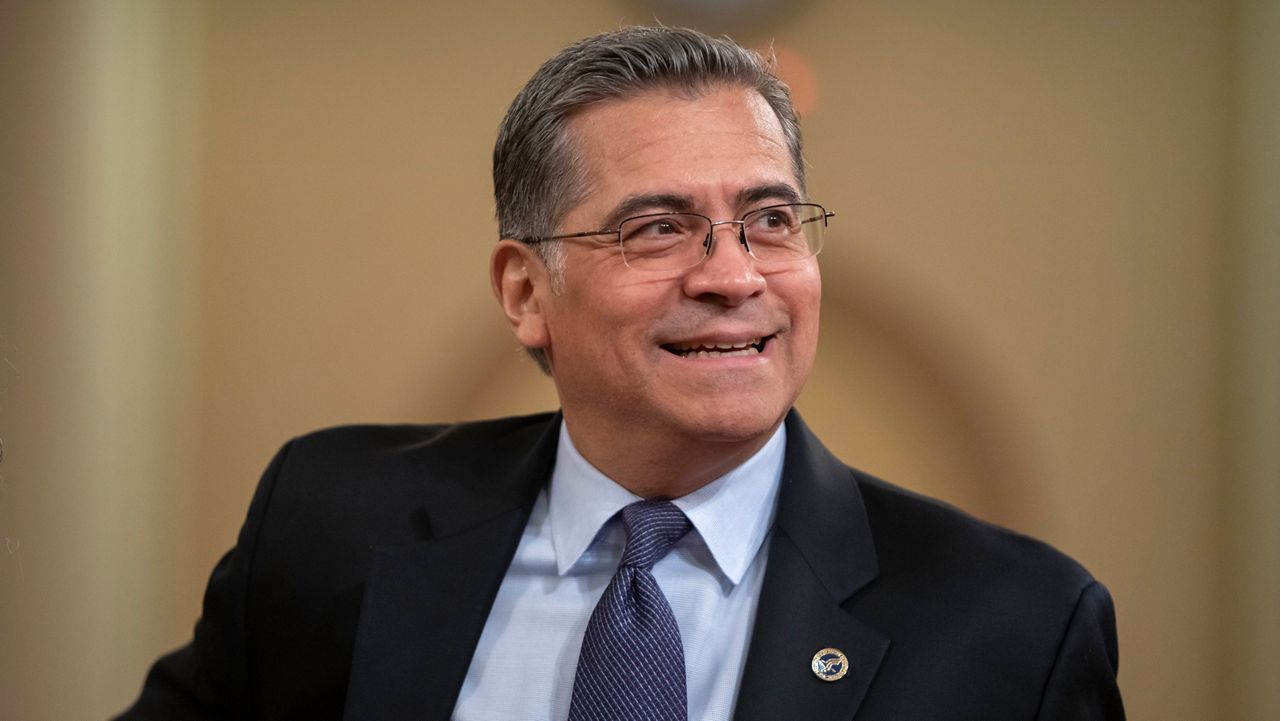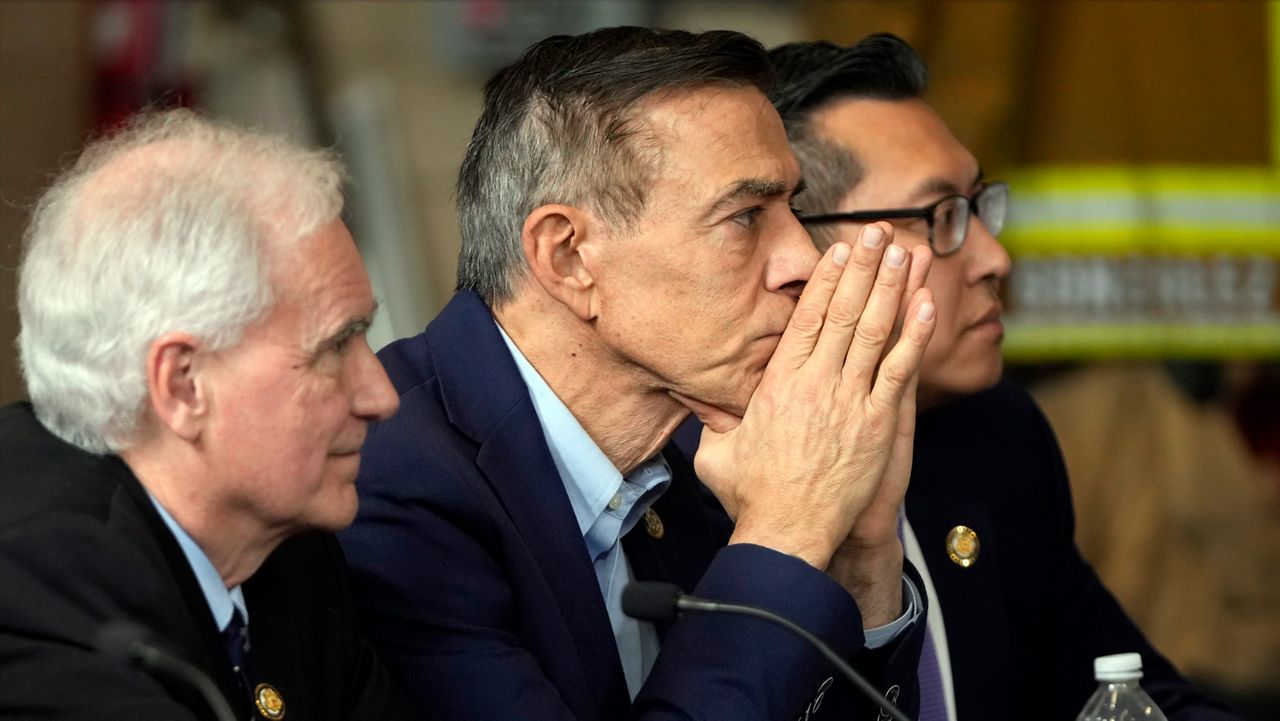Digging into the batter’s box and staring down the pitch, Rep. Debbie Wasserman Schultz, D-Fla., has a huge smile on her face.
It’s a Wednesday morning, just before 8 o’clock, more than a mile from the Capitol building, and the Congresswoman has been at practice already for nearly an hour with her team. Softball has held a special place in the Florida representative’s heart since childhood.
“I wouldn’t say I’m a super jock, but I love softball,” said Wasserman Schultz with a bit of a chuckle.
She’s not playing in a rec league, but sitting in the dugout with a team made up of Democrats and Republicans, senators and representatives. Every summer for more than a decade, the women who serve in Congress and the women journalists who cover them face off in a softball game for charity.
And for a few weeks in the spring and early summer you’ll find Wasserman Schultz and her team on the softball diamond, getting some work in before getting the people’s work in.
“We are very competitive, the women members. No matter whether you're a Democrat or Republican. We're one team — Team Congress — in this game.”
The annual game has raised more than $3.7 million for the Young Survival Coalition since it began in 2009. The first game was played at Glover Park field, with the members playing “on a random field at a park for practice across the street from my townhouse,” she said. The game continued to grow, and eventually moved to Watkins Recreation Center in 2011, where it’s played today.
“We built this to thousands of fans right here, in our little hometown game, and we're very proud of it,” she said.
For Wasserman Schultz, the game is particularly meaningful; in fact, she’s the reason the game exists at all.
At 41, the congresswoman went for her first mammogram. “It didn't have any evidence of cancer, but it showed calcifications. So that kind of raised my antenna,” she recalled. “Three months after my clean mammogram, I was doing a self-exam in the shower because, you know, I knew I needed to pay attention to my breast health…and I found something that had not been there before.”
That discovery turned out to be cancer. As an Ashkenazi Jewish woman with a history of breast cancer in her family, her doctor encouraged her to get a genetic test following her cancer diagnosis, and it came back positive for the BRCA2 gene mutation, making it more likely for Wasserman Schultz to develop ovarian cancer down the road in addition to increasing the chances her breast cancer could return.
“I went from only needing a lumpectomy and radiation to having seven surgeries over the course of 15 months, a double mastectomy, hysterectomy, and the associated surgeries with that,” said Wasserman Schultz. “Thank god, 16 years later, I am cancer free.”
As she underwent treatment, the South Florida lawmaker kept her battle private. She only told her staff and some of her closest family members, in part to protect her children.
“When you have cancer, you lose control of most of your life, except focusing on getting better and and so I knew that I wanted to control how much I could do — not have people say, you know, you're we're not going to ask Debbie to do that, because she's battling breast cancer,” she said. And she wanted to protect her three kids — then four, nine and nine years old — because they thought cancer was a death sentence. “I knew I was going to be okay. I just wanted to make sure that I could keep them safe and protected from that fear,” she said.
“But I knew I would use my platform once I was all finished and cancer-free.”
Once she received her clean bill of health, Wasserman Schultz turned that private pain into public advocacy. She approached then-Missouri Rep. Jo Ann Emerson with a pitch: a charity game, played by the women of Congress, for the Young Survival Coalition, an organization advocating for people under 40 who have been diagnosed with breast cancer.
The first year of the Congressional Women’s Softball Game, in 2009, the members played their staff, which the congresswoman called “our bright idea,” with biting sarcasm.
“We played a team — a bipartisan team of the DNC, the RNC, the DCCC, the NRSC, you know, all the political staffers, of course — who had played softball five minutes ago in high school or college.” By contrast, Wasserman Schultz said she, Sen. Kyrsten Gillibrand, D-N.Y., and Rep. Kathy Castor, D-Fla. were each the youngest members players at 41.
The game, uh, didn’t go well for the Congress members. The Congressmembers lost the inaugural game 14 to 8.
The members decided they needed a bit of a more equal opponent — or at least, opponents who weren’t fresh off the intercollegiate or intramural diamond — so they asked the women of the press to step onto the field with them.
A tradition was then born, and the “Bad News Babes” as the press corps players call themselves square off against the women of Congress every summer.
The press leads the historical series with nine wins to the members’ four. Last year the Babes nearly shut out the lawmakers, until a late-inning rally put the members of Congress on the board — but it wasn’t enough. The Bad News Babes filed away a 15 to 9 victory. The press reclaimed the trophy and are hoping to be able to hold onto it.
The members are hungry for a win, Wasserman Schultz said. “We’re looking to take back the trophy, for sure.”
When Spectrum News reporter Cassie Semyon, who will make her debut in the game Wednesday for the Bad News Babes, asked the congresswoman for advice, the trash talk started.
“Strike out. Don’t field well,” said Wasserman Schult with a laugh. “Get ready to lose.”
But in all seriousness, she said, the excitement surrounding the game could make anyone nervous — even a pro like her.
“My advice to you is…just bask in the glow of the experience, and tune everybody out because it can be nerve-wracking. I mean, none of us normally play in front of thousands of people with all kinds of stuff going on,” she suggested. “I get more nervous for this than I do stepping up and speaking to a crowd of a thousand people.”
But when the nerves subside, and the game begins, for both teams, it’s about raising money and awareness for breast cancer. And it’s a part of Wasserman Schultz’s legacy that she hopes will live long beyond her time in Washington.
“What I hope my legacy is, is that we saved lives…and that we helped women who are always focused on everyone else but themselves, to be able to spend a little time thinking about their own breast health, about taking care of themselves,” she said.









